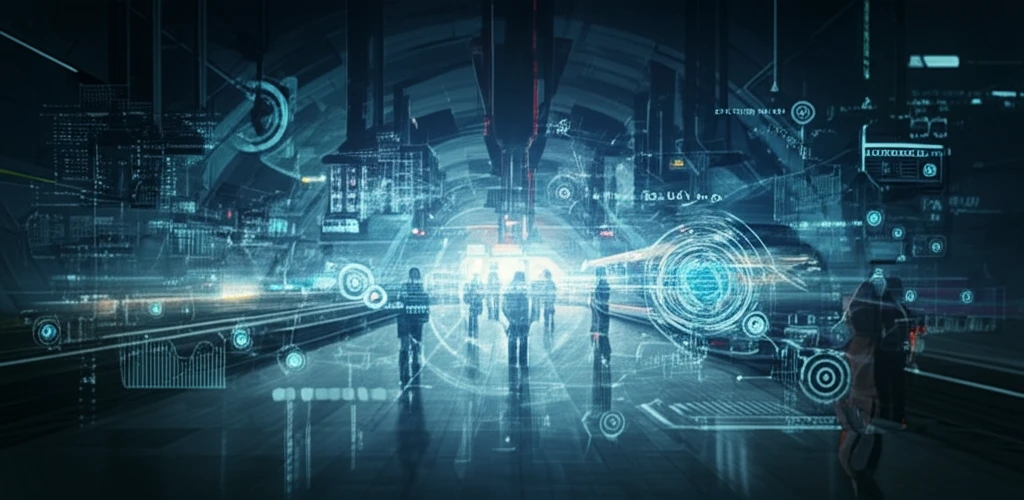
Missed Your Connection? How AI Can Rescue Your Metro Commute
"Discover how cutting-edge AI algorithms are revolutionizing metro systems by optimizing last-train transfers, ensuring you reach your destination even when time is tight."
Urban life pulses with a rhythm dictated by transit systems, and in the heart of many bustling cities, the metro stands as a vital artery. But what happens when the rhythm falters? When a delayed train threatens to derail your carefully planned journey, especially during the last run of the night? For many, missing that final connection means more than just inconvenience; it represents a significant disruption, potentially stranding them far from their destination.
The challenge of coordinating last-train transfers in complex metro networks is a puzzle that has long vexed urban planners. Traditional methods often fall short, struggling to adapt to the dynamic ebb and flow of passenger traffic, particularly as lines begin to shut down for the night. This is where artificial intelligence steps onto the stage, offering a powerful solution to optimize these critical connections and ensure smoother, more reliable commutes.
Imagine a metro system that anticipates your needs, adjusting schedules in real-time to maximize successful transfers and minimize disruptions. This is the promise of AI-driven transfer coordination, a groundbreaking approach that not only enhances accessibility but also reduces the anxiety associated with navigating complex urban transit networks. Let's delve into how this technology is reshaping the future of urban mobility.
How Does AI Optimize Last-Train Transfers?

At its core, AI-driven transfer coordination uses sophisticated algorithms to analyze passenger flow, predict potential bottlenecks, and dynamically adjust train schedules to ensure that as many passengers as possible make their connections. This involves a multi-faceted approach that takes into account various factors:
- Predict Demand: Accurately forecast passenger flow during the last-train period.
- Identify Bottlenecks: Pinpoint potential transfer issues at specific stations.
- Optimize Schedules: Adjust departure times to maximize successful transfers.
The Future of Metro Commuting: Seamless Transfers and Reduced Stress
AI-driven transfer coordination represents a significant leap forward in urban transit management. By leveraging the power of artificial intelligence, metro systems can become more responsive, reliable, and passenger-centric. As this technology continues to evolve, we can anticipate even more seamless and stress-free commutes, ensuring that everyone reaches their destination, even when time is of the essence. This is a future where technology works in harmony with urban life, enhancing our daily experiences and making our cities more accessible to all.
